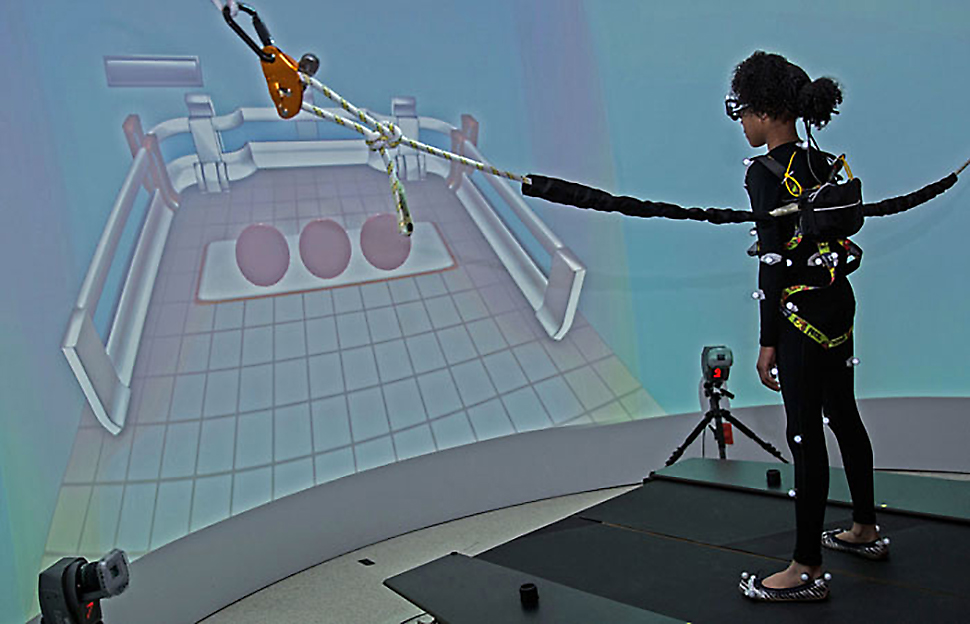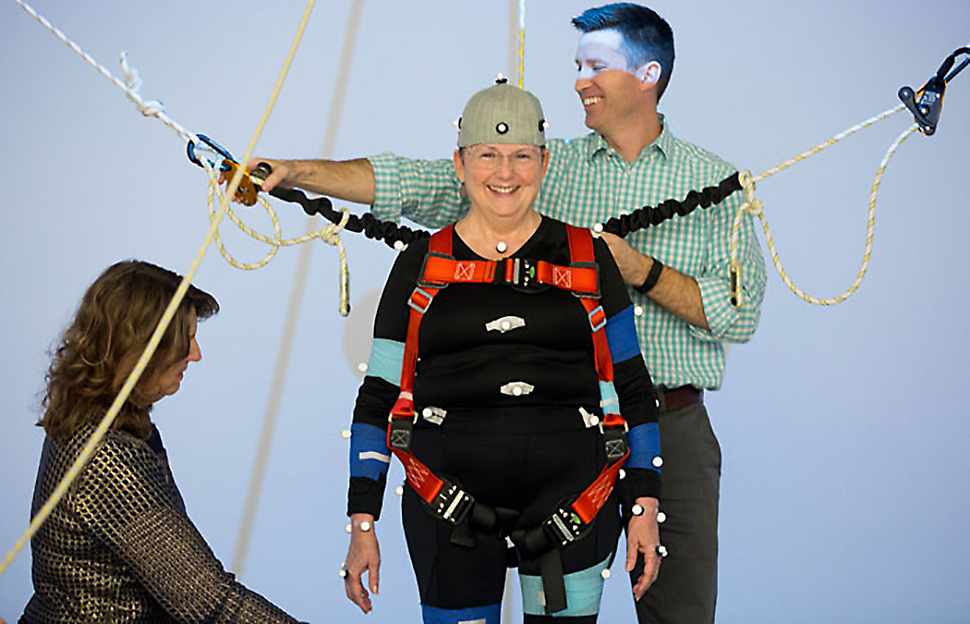Researchers from the UNT Health Science Center are asking patients with mobility diseases to show up and fall down — all while strapped into a harness and ropes, of course.
The Human Movement Performance Laboratory at the Fort Worth school is using state of the art motion picture equipment and virtual reality to record and analyze the movement of people with mobility problems such as Parkinson’s disease.
“You’ll find engineers, neuroscientists, physical therapists, kinesiologists, and experimental psychologists coming together to solve complex problems.”
RITA PATTERSON
Evan Papa and Rita Patterson are leading the research team to discover why people with Parkinson’s are more prone to falling in hopes their findings can lead to a better quality of life.
By placing reflective markers on the individual, researchers are able to recreate a 360 degree model of the body on their computer and track the person’s movement in detail.
It’s just one of many studies being tackled by researchers at the lab. Other projects involve how to help amputees, people with autism, stroke victims, and more who suffer from balance and function issues. While similar labs exist in the country, UNTHSC said the Human Movement Performance Lab stands out for its extensive array of patients.
“The laboratory emphasizes team-based research,” said Patterson, director of research for Osteopathic Manipulative Medicine, in a release. “You’ll find engineers, neuroscientists, physical therapists, kinesiologists, and experimental psychologists coming together to solve complex problems.”

[Photo: UNTHSC]
With the help of a $65,000 grant from UNT’s Health Science Center, the Human Movement Performance Lab will be able to purchase six new cameras and software that will display the movements at a higher resolution.
“We work with people across their lifespans — from children to the elderly,” said Dr. Nicoleta Bugnariu, interim dean for the School of Health Professions, in the release. “Our goal is to help people live active, independent lives.”






























